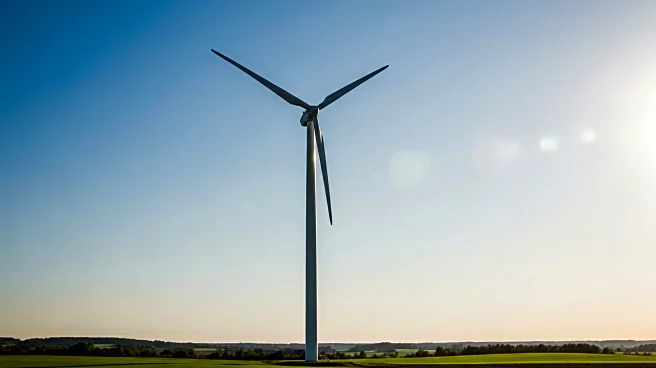What's Happening?
Chris Wright, serving as energy secretary under President Trump, has been influential in shaping an energy agenda focused on deregulation and fossil fuel expansion. In a conversation at the Climate Forward conference, Wright expressed his support for countries to follow the U.S. lead in withdrawing from the Paris Agreement on climate change. He defended the Trump administration's stance against wind and solar power, citing widespread opposition to these technologies. Wright's comments reflect the administration's prioritization of traditional energy sources over renewable alternatives, aligning with its broader policy of reducing regulatory constraints on the energy sector.
Why It's Important?
Wright's advocacy for fossil fuel expansion and deregulation has significant implications for U.S. energy policy and climate change efforts. The push against renewable energy sources could hinder progress towards sustainable energy solutions and impact international climate commitments. The stance taken by the Trump administration may influence other countries' energy policies, potentially affecting global efforts to combat climate change. Stakeholders in the renewable energy sector, environmental groups, and policymakers face challenges in advancing clean energy initiatives amidst this political climate.
What's Next?
The ongoing debate over energy policy under the Trump administration is likely to continue, with potential implications for future regulatory changes and international climate agreements. Stakeholders in the energy sector may respond with increased advocacy for renewable energy and climate action. The administration's policies could face legal challenges and public opposition, influencing the direction of U.S. energy policy in the coming years.
Beyond the Headlines
The emphasis on fossil fuels raises ethical and environmental concerns, as it may contribute to increased carbon emissions and environmental degradation. The policy direction under the Trump administration highlights the tension between economic interests and environmental sustainability, posing long-term challenges for achieving climate goals. The discourse around energy policy reflects broader cultural and political divides regarding climate change and energy independence.









